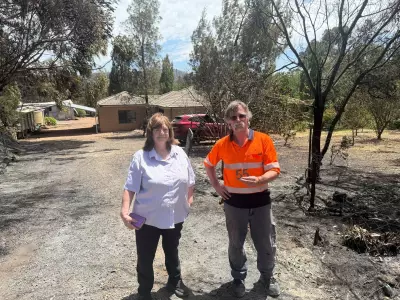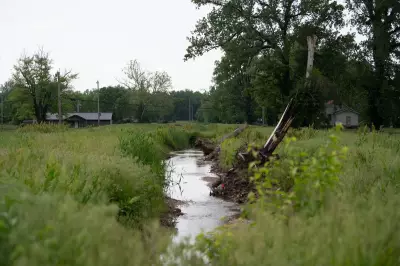
Australia's journey toward meaningful climate action has hit a significant roadblock, and it's coming from an unexpected direction within the country's own borders. While the federal government under Anthony Albanese attempts to steer the nation toward cleaner energy, Queensland's political landscape is creating powerful headwinds that threaten to derail progress.
The State-Level Standoff
Recent developments in Queensland reveal a deepening commitment to fossil fuel industries that directly contradicts national climate objectives. The state government, facing political pressure from climate sceptics, has been approving new coal and gas projects at an alarming rate. This subnational resistance is creating a policy schism that experts warn could have far-reaching consequences for Australia's ability to meet its international climate commitments.
Political Calculations vs Environmental Reality
The situation represents a classic case of short-term political calculation clashing with long-term environmental necessity. Queensland's government appears to be prioritising immediate economic gains and electoral advantages over the broader national interest in reducing emissions. This approach not only undermines federal policy but also risks locking Australia into high-emission pathways for decades to come.
The approval of multiple new fossil fuel projects demonstrates how regional politics can complicate national environmental strategies. Each new project represents decades of future emissions that will count toward Australia's carbon budget, making the Albanese government's task significantly more difficult.
National Implications
This state-level resistance comes at a critical juncture for Australian climate policy. The federal government is attempting to rebuild international credibility on environmental issues while managing domestic economic transitions. Queensland's stance threatens to:
- Undermine Australia's emissions reduction targets
- Complicate international climate negotiations
- Create investment uncertainty in the energy sector
- Delay the transition to renewable energy sources
A Broader Pattern of Resistance
Queensland's position reflects a broader pattern of climate policy resistance within certain Australian political circles. The political accommodation of climate denialism, even as the country experiences increasingly severe climate impacts, highlights the ongoing tension between environmental imperatives and fossil fuel interests.
The situation raises fundamental questions about governance structures and whether federal governments have sufficient tools to ensure coordinated national action on critical issues like climate change when state governments pursue contradictory policies.
Looking Forward
As the Albanese government contemplates its next moves, the Queensland situation serves as a stark reminder of the complexities of climate governance in a federal system. The coming months will reveal whether coordinated action can prevail over fragmented approaches, or if Australia's climate efforts will remain hampered by internal contradictions.
The world is watching to see if Australia can overcome these domestic challenges and emerge as a genuine leader in the global fight against climate change, or if internal divisions will continue to compromise the nation's environmental progress.





